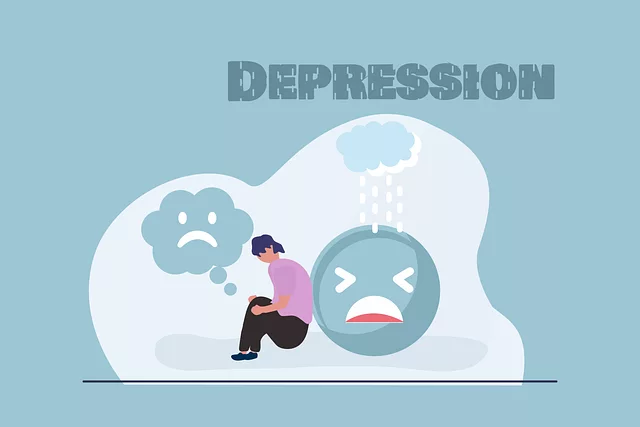Mental health professionals at Kaiser's Lone Tree services are trained in balancing patient care with risk management. This involves self-awareness exercises, open communication strategies, and stress reduction methods to prevent burnout, enhance early intervention, and ensure high-quality care for complex cases with diverse needs. Searches for 'does Kaiser offer mental health services Lone Tree' highlight the importance of these proactive measures. Kaiser's services in Lone Tree utilize evidence-based methods, cultural sensitivity, and holistic approaches like individual therapy, group counseling, and Mental Wellness Coaching Programs to cater to a wide range of psychological needs. By prioritizing legal and ethical risk management, including burnout prevention, Kaiser ensures optimal patient outcomes and maintains a healthy work environment for its mental health professionals.
Mental health professionals are constantly navigating complex risks in their practice, from patient safety to ethical dilemmas. Effective risk management planning is essential to ensure quality care and mitigate potential harms. This article explores strategic approaches for mental health professionals, focusing on key areas such as risk assessment tools, clinical practice strategies, and legal ethics. We also examine whether Kaiser provides comprehensive mental health services in Lone Tree, highlighting the importance of understanding local healthcare offerings for optimal patient outcomes.
- Understanding Risk Management in Mental Health Care
- The Role of Risk Assessment Tools for Mental Health Professionals
- Does Kaiser Offer Comprehensive Mental Health Services in Lone Tree?
- Strategies to Minimize Risks in Clinical Practice
- Legal and Ethical Considerations in Mental Health Risk Management
Understanding Risk Management in Mental Health Care

Mental health professionals are uniquely positioned to understand the delicate balance between caring for patients’ well-being and managing potential risks. Risk management in this context goes beyond typical operational considerations; it’s about fostering a culture of resilience, where professionals are equipped to handle various challenges while prioritizing patient safety. This proactive approach is especially crucial in environments like Kaiser’s mental health services in Lone Tree, where complex cases and diverse patient needs demand meticulous planning.
Effective risk management involves integrating self-awareness exercises into the daily routine to mitigate potential burnout or emotional fatigue, which can compromise judgment. Additionally, communication strategies play a pivotal role in identifying and addressing risks early on. By fostering open dialogue among team members and patients, mental health professionals can ensure timely interventions, enhancing overall care quality and patient outcomes.
The Role of Risk Assessment Tools for Mental Health Professionals

Mental health professionals are tasked with managing complex client scenarios, making risk assessment tools indispensable. These tools help in identifying potential risks and hazards within the therapeutic process, enabling practitioners to proactively mitigate negative outcomes. By utilizing evidence-based risk assessment methods, such as those available through Kaiser’s mental health services in Lone Tree, professionals can ensure the safety of their clients and themselves. This involves not only evaluating individual client factors but also considering environmental influences and societal trends that might impact mental health.
Effective risk management planning doesn’t stop at assessment; it seamlessly integrates communication strategies and emotional well-being promotion techniques to foster a supportive environment. Cultural sensitivity in mental healthcare practice is another critical aspect, ensuring that the unique needs and perspectives of diverse client populations are addressed. By adopting these comprehensive approaches, mental health professionals can enhance their ability to navigate challenging situations, ultimately providing high-quality care tailored to each individual’s specific requirements.
Does Kaiser Offer Comprehensive Mental Health Services in Lone Tree?

In Lone Tree, Kaiser is renowned for its comprehensive mental health services, aligning with the Mind Over Matter Principles that underpin its healthcare philosophy. The organization offers a wide array of resources designed to support and enhance the mental wellness of its community members. These services encompass individual therapy, group counseling sessions, and innovative Mental Wellness Coaching Programs Development, ensuring a holistic approach to addressing various psychological needs.
Kaiser’s Lone Tree facility is equipped to handle a spectrum of mental health concerns, promoting not just treatment but also recovery and well-being. Their expert team includes licensed therapists, counselors, and coaches who employ evidence-based practices alongside patient-centric care. This multi-faceted approach reflects the organization’s commitment to fostering mental wellness within the community, making Kaiser a leading choice for those seeking exceptional mental health services in Lone Tree.
Strategies to Minimize Risks in Clinical Practice

Mental health professionals constantly navigate a landscape of risks, from patient confidentiality to ethical dilemmas and even physical safety. To mitigate these challenges, several effective strategies are available. One key approach is integrating Stress Reduction Methods into daily practice, ensuring professionals maintain their emotional resilience. This can include mindfulness exercises, meditation practices, and regular self-care routines as a Mental Wellness Journaling Exercise.
Moreover, organizations like Kaiser offer comprehensive Mental Health Education Programs Design, providing professionals with the knowledge and tools to address not only their own mental health but also that of their patients. By participating in these programs, clinicians can learn tailored strategies to manage risks specific to their practice, such as those faced by providers in Lone Tree, Colorado. Such proactive measures contribute significantly to a healthier work environment and improved patient outcomes.
Legal and Ethical Considerations in Mental Health Risk Management

In the realm of mental health services, such as those offered by Kaiser in Lone Tree, legal and ethical considerations are paramount to risk management planning. Mental health professionals must navigate a complex web of regulations and guidelines designed to protect both patients and practitioners. The American Psychological Association (APA) offers robust standards for ethical practice, emphasizing confidentiality, informed consent, and the competent delivery of services. Additionally, state-specific laws regarding patient rights, privacy, and reporting requirements must be meticulously understood and adhered to.
Burnout prevention is a key aspect of maintaining optimal mental wellness among healthcare providers. Implementing communication strategies and fostering an environment that encourages open dialogue can mitigate risks associated with professional stress. Mental wellness coaching programs development plays a crucial role in this regard, offering tools and resources to support the holistic well-being of mental health professionals. By prioritizing these factors, organizations like Kaiser can ensure high-quality care while minimizing potential risks within their Lone Tree services.
Mental health professionals play a crucial role in helping individuals navigate complex emotional landscapes, making risk management planning essential. By utilizing effective risk assessment tools and implementing strategic practices, professionals can ensure safe and comprehensive care for their clients. As discussed, strategies like regular supervision, cultural competency training, and staying updated on legal guidelines are vital. Additionally, understanding the scope of mental health services offered by established providers like Kaiser in Lone Tree can empower professionals to make informed decisions regarding patient care and risk mitigation. Effective risk management not only protects practitioners but also enhances the overall quality of mental health services delivered.






